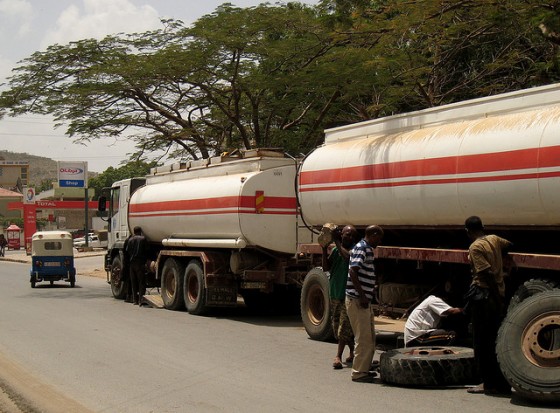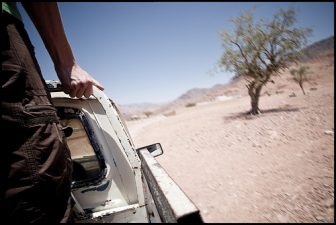 Libya is one of the countries with which Turkey signed a rapid oil supply deal after the United States threatened to sanction countries that purchased oil from Iran.
Libya is one of the countries with which Turkey signed a rapid oil supply deal after the United States threatened to sanction countries that purchased oil from Iran.
In March, U.S. President Barack Obama approved sanctions on buyers of Iranian crude oil, effective starting in July. The announcement threw many of Iran’s international customers into a panic as they requested exemptions and began seeking new sources for the precious fuel.
Thanks to its exceptionally high energy demand and reliance on Iranian imports, Turkey is one of the countries whose energy strategy will most drastically change as a result.
A temporary reprieve
The Turkish government managed to negotiate a temporary exception to the sanctions. After all, Turkey imported more than half of its crude oil from Iran in 2011: nearly six million tons, according to Al Arabiya.
In addition to six other emerging economies that are especially dependent on Iran’s oil, Turkey will be allowed to buy oil from Iran for six months beyond the regular cut-off date. After July 1, though, Turkey will be the only European country still buying from Iran.
Already, Turkey has begun reducing its oil imports from Iran. In March 2012, Turkey bought an unusually high figure of 270,000 barrels of oil per day (bpd) from Iran, more than twice as much as the 100,000 bpd it had bought in February. But in June and July, Turkey is aiming for a more modest 142,000 bpd from Iran, roughly a 20 percent decrease from its 2011 average.
Seeking fresher fields
In the meantime, the pressure is on in Turkey, where energy demand is growing at a record pace — up 9.8 percent from 2009 to 2010.
Turkey is aggressively seeking new oil suppliers near and far.
Earlier this month, Turkey signed a one million ton oil supply accord with Libya, the first new oil trading partner it has found since the U.S. announcement in March. The North African country is hardly a stable trading partner at the moment, however, with tensions still especially high in the eastern, oil-rich region of the country, according to energy analyst John Daly. A Saudi deal is also purportedly in the works, although it hasn’t been announced yet.
Turkey’s quest for oil has led it across the Atlantic Ocean to Venezuela, where another deal is nearly finalized, according to Turkish Energy Minister Taner Yıldız. Under the terms of the Venezuelan accord, Turkish contractors would go work in Venezuela in exchange for oil products such as petroleum coke.
Time for a change?
This latest scramble for hydrocarbon fuels is yet another sign that Turkey is pursuing an unhealthy and outdated energy strategy that will ultimately hamper its economy and public welfare.
Already, the price of gasoline at the pump is usually higher in Turkey than anywhere else in the world, largely due to the country’s reliance on imports.
Turkey’s dependence on oil and gas — of which it imports 93 and 98 percent of what it consumes, respectively — has already damaged its international standing. Its natural gas addiction propelled an aggressive gas drilling operation off the coast of Cyprus earlier this year, arousing the ire of several regional neighbors.
The goal of Obama’s sanctions is to sap Iran’s oil revenues, forcing it to curtail its uranium enrichment program. But it may have another, indirect effect in countries like Turkey: motivating them to invest in reliable, local, renewable energy sources rather than the riskier, dirtier ones that lie beneath the ground.
:: OilPrice.com
Read more about the geopolitics of energy in Turkey:
Natural Gas Creating New Axes of Alliance Across Mediterranean
Where Can You Find the World’s Most Expensive Gasoline? Probably Turkey.
Turkey Begins Controversial Drilling In Cyprus
Image via Travlr


